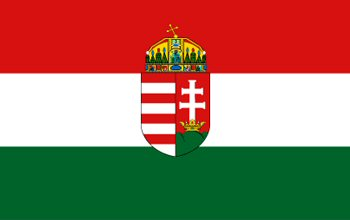An Overview of the Provisional Government of Hungary
Hungarian National Assembly (
Országgyűlés)
The provisional government is founded upon a principle of federal cooperation, in which local and regional authorities share power with a central national government. While the central government, constituted primarilly by the National Assembly, is reponsible for most major decisions and for the prosection of the War of Independence, local governments retain much control over the laws and policies of their townships and cities, and are instrumental in constructing the National Assembly. Here is a more detailed analysis of the provisional Hungarian federal system:
Popular Meeting: Local extralegal participatory legislative and administrative body, consisting of local Hungarian nationals. The Popular Meetings are responsible for organizing local militias and local resistance to the Imperial government, coordinating communication and cooperation with other Meetings, and appointing delegates to the National Assembly. Once Imperial authority has been removed in a locality, the Meeting will serve as the legislative governing body of that locality.
National Assembly: Legislative and administrative assembly, consisting of delegates appointed from all localities by the Popular Meetings. The National Assembly is the de facto revolutionary government of Hungary, and is responsible for raising and maintaining the military and coordinating foreign affairs and diplomacy. Once Imperial authority has been eliminated in Hungary, the National Assembly will serve as the national legislature of Hungary.
Executive Committee: National executive, consisting of ministers chosen from amongst the National Assembly delegates. The Executive Committee, headed by the Chancellor, is responsible for managing the daily affairs of the state, executing legislative policy, carrying out foreign policy and diplomacy, and managing the military.
Executive Committee Positions:
Chancellor of the National Assembly: Chief executive, Head of Government, and de facto Head of State, chosen from amongst the National Assembly delegates. The Chancellor is responsible for executing legislative policy, enacting foreign and domestic policy, and managing the operation of the government. The Chancellor has the power to issue Executive Orders, which carry the same force as legislation passed by the Assembly, in times of emergency. The Chancellor is Supreme Commander of all Hungarian national forces, and can nationalize the local militias by executive order. This office is currently held by Chancellor Lajos Kossuth.
President of the National Assembly: Chairman of the legislature, chosen from amongst the National Assembly delegates. The Assembly President is responsible for managing the operation of the National Assembly, maintaining order during legislative sessions, mediating internal political conflicts, and casting tie-breaking votes in the Assembly. This office is currently held by President Count István Széchenyi.
Minister of State: Executive minister for foreign affairs and chief advisor on foreign and domestic policy, appointed by the Chancellor from amongst the National Assembly delegates. The Minister of State is responsible for managing foreign relations and carrying out diplomacy, and for advising the Chancellor and Assembly on matters of foreign (and to a lesser extent, domestic) policy. This office is currently held by the Honourable Count Ferenc Deák.
Minister of War: Executive minister for military affairs and chief advisor on military matters, appointed by the Chancellor from amongst the National Assembly delegates. The Minister of War is responsible for managing the operation of the Army and coordinating the operations of the various Militias, for formulating military policy and doctrine, and for advising the Chancellor and Assembly on military matters and the state of the military. The Minister of War is the second-highest-ranking commander in the Army command structure, behind the Chancellor; unlike the Chancellor, he holds the honorary military rank of General of the Armies. This office is currently held by the Honourable General Ödön Beöthy.
Minister of Finance: Executive minister for financial affairs and chief advisor on financial and economic matters, appointed by the Chancellor from amongst the National Assembly delegates. The Minister of Finance is responsible for administrating the operations of the Treasury, managing the government budget, and advising the Chancellor and Assembly on financial policy and economic matters. This office is currently held by the Honourable Ferenc Pulszky.
Minister of the Magistracy: Executive minister for judicial and legal affairs, and chief advisor on judicial and legal matters, appointed by the Chancellor from amongst the National Assembly delegates. The Minister of the Magistracy is responsible for organizing and managing the judiciary arm of the National Assembly, which includes regional and national criminal and civil courts (local justice is handled by the Meetings), and the National Tribunal (which tries cases of high treason), and also for advising the Chancellor and Assembly on judicial and legal matters. In cases of high treason, the Minister of the Magistracy may serve as the chief prosecutor. This office is currently held by the Honourable Justice László Szalay.






 A kind of shish kebab.
A kind of shish kebab.
